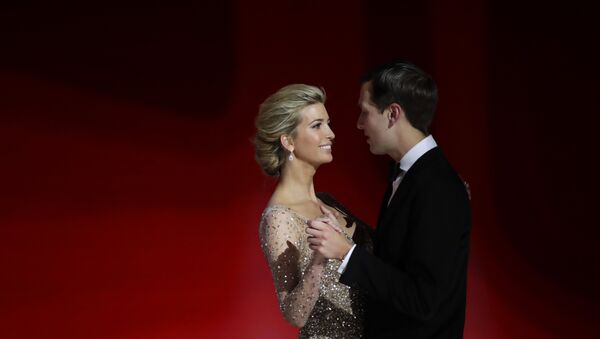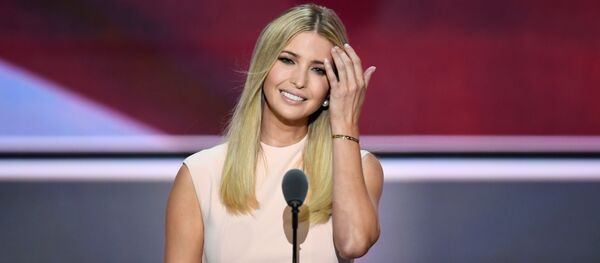US President Donald Trump's team, a handpicked group of extremely wealthy advisers from the highest echelons of America's rich, has drawn accusations from ethics watchdogs of the likelihood of widespread profit-taking and corporate collusion within the president's administration.
Documenting assets, investments and salaries of some 180 officials close to the administration, the disclosures shed light on the financial network now enmeshing the White House.
Financial information about Trump, said to be a billionaire, is not included in the disclosures.
Those at or near the top of the list include the president's son-in-law and senior adviser, Jared Kushner, and Trump's economic adviser, Gary Cohn, a former president of multinational finance company Goldman Sachs.
Kushner, along with his wife, Trump's daughter Ivanka, are the beneficiaries of Kushner's family real-estate business, said to be worth as much as $740 million, according to The Hill. Prior to joining the Trump administration, Kushner had holdings in some 58 businesses, of which he is said to have now divested himself. Prior to January, Kushner held about $90 million of credit, as well.
Ivanka has kept her financial interest in the Trump International Hotel in Washington DC, to the tune of somewhere between $5 and $25 million. Her position as an adviser to the president, her father, will be unpaid, according to reports.
Cohn is shown as having some $254 million in assets, earning a minimum of $48.3 million over 2016 and early 2017.
Alongside Kushner and Cohn in the White House inner circle is Steve Bannon, Trump's chief strategist and the former head of right-wing website Breitbart News. Bannon has revealed assets of up to $56 million, and an annual yearly salary at Breitbart of just under $200,000.
Trump's former campaign manager Kellyanne Conway, who now serves as the president's White House counselor, is said to be worth some $40 million, primarily as a result of profits realized by her political counsultancy, as well as large stock holdings in Pfizer, Kraft Heinz and Philip Morris, among other publicly-held multinationals.
Former Republican party head Reince Pribus earned over $500,000 during his tenure, also bringing in a minimum of $750,000 last year in other financial dealings and a law firm salary.
According to Deutsche Welle, Democratic lawmakers and ethics groups have voiced concern that Trump's cabinet picks include those with more potential conflicts of interest due to their investments than during any previous administration.
The financial disclosures, reviewed by the Office of Government Ethics, are required by law, and are considered to be a snapshot, not necessarily revealing current worth or specific investments. If conflicts of interest are identified, the agency can require cabinet members to sign agreements to ensure that they will divest themselves of holdings, or resign from corporate positions of power.
Unlike recent presidential candidates, Trump, a deep-pockets real-estate speculator, has consistently refused to reveal his tax returns and instead of transferring his business interests to a blind trust, as is common, handed off the reins to two of his sons, a move many have criticized.





